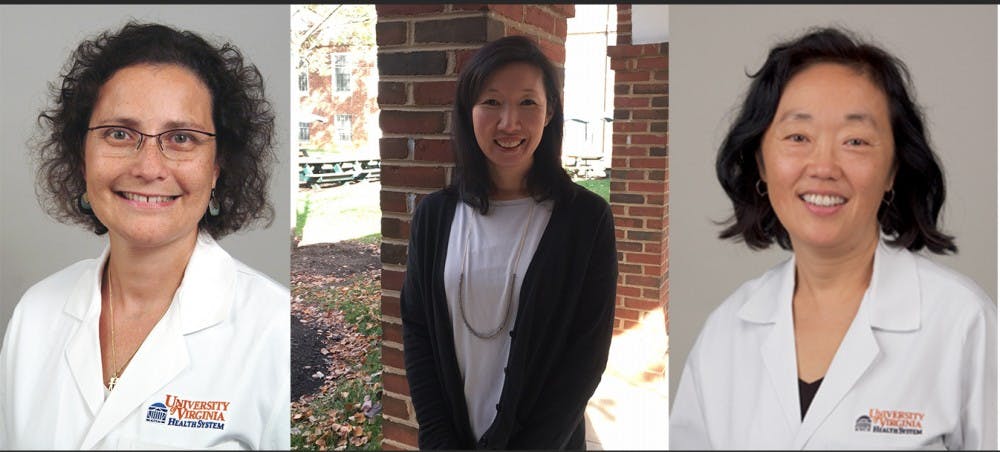According to the National Institute of Child Health and Human Development, sudden infant death syndrome — the unexplained death of an infant who appears otherwise healthy — is the leading cause of death of babies between one month and one year of age. A group of researchers, including Assoc. Family Medicine Prof. Fern Hauck, Pediatrics Prof. Rachel Moon and research assistant Kawai Tanabe, are investigating the relationship between breastfeeding and risk of SIDS.
According to Hauck, she and researchers in New Zealand and Germany conducted a study that was published in 2011. In that study, they found that breastfeeding protects against SIDS.
“Then we got the idea that we wanted to look at duration of breastfeeding to see if it mattered how long moms breast-fed for in terms of risk or protection, in this case against SIDS,” Hauck said.
To study the relationship between duration of breastfeeding and risk of SIDS, the researchers collected data from eight different international studies. Combining the data from the studies increased the sample size and made the study more representative of a variety of populations.
According to Hauck, these eight studies all had a similar design in which the number of infants who died from SIDS was matched with the number that were still living. Then, the parents of both groups were asked a series to questions in order to identify what factors differentiated the groups.
“What makes SIDS really scary is that it can’t be predicted and therefore in a lot of cases, it can’t be prevented,” said Annelee Boyle, assistant professor of obstetrics and gynecology.
Hauck said that it is known that sleeping on the stomach is a risk factor for SIDS. Through their research, Hauch and her team confirmed increased mortality for infants often paired with sleeping more often on their stomachs.
In addition, Hauck said that they had to repeat the analyses multiple times to ensure that the study results were consistent, as they were drawn from such a wide variety of countries.
“We were reassured by that, that even though they were different countries and different ethnicities … the basic results were similar,” Hauck said.
Going into the study, Hauck said that the researchers believed that exclusive breastfeeding, as well as a longer duration, would both be associated with greater protection. However, the study results showed that these hypotheses were not entirely correct. While there does not exist a significantly increased protective effect of exclusive breastfeeding, they did find that the protective effect increased with a longer duration of breastfeeding.
“What we found was that the benefits to breastfeeding — whether it was partial or it was exclusive — were basically similar,” Hauck said.
Additionally, in terms of duration, the researchers found that mothers should breastfeed for at least two months in order to protect against SIDS. However, at times longer than two months, although there was an increase in protection, it was not dramatically different.
According to Hauck, the infants who were breastfed between two and four months had a 40 percent reduction in SIDS risk compared to babies who were not breastfed at all. If infants were breastfed between four and six months, the reduction increased to 60 percent.
In addition to the benefit of breastfeeding in protecting against SIDS, according to Boyle, there are other advantages to breastfeeding compared to formula feeding, including decreased risk of allergies and an increased likelihood of maintaining a healthy weight through childhood and adulthood. Barbara Reyna, associate professor of nursing and neonatal nurse practitioner coordinator, also said in addition to the nutritional benefits, breastfeeding allows for mother-infant bonding.
Although the researchers do not have a full understanding of the mechanisms that make breastfeeding protective against SIDS, Hauck said that they have a few theories.
According to Hauck, babies who sleep more deeply do not wake up if they are in an oxygen-compromised state and, therefore, are more likely to die from SIDS. Hauck said that breastfed babies sleep more lightly and wake up more frequently, as they wake up more frequently to be nursed, which might protect them against SIDS.
Hauck said another theory is that mothers deliver antibodies to their babies in breast-milk, which makes the baby sick less often. Since getting sick, including with the common cold or diarrhea, is a risk factor for SIDS, breastfeeding reduces that risk.







